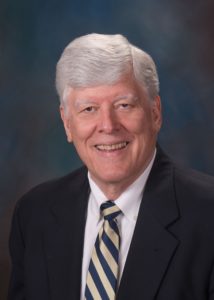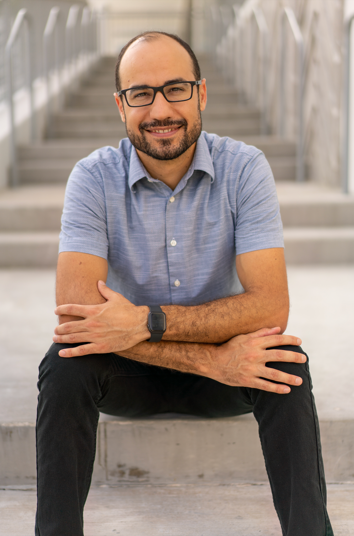Advanced Workshop
We are excited to announce that the ISIP Board has changed the previous requirment that Advanced Workshop Attendees are required to attend the Series Workshops prior to attending advanced workshops. Anyone that feels they have a good understanding of Adlerian Theory is now welcome to attend Advanced Workshops. Advanced workshops are designed for those that understand the basic Adlerian principals. Therefore there is little teaching of these principals in the workshops.
“From Safeguarding Tendencies to Perceptual Change”
From Safeguarding Tendencies to Perceptual Change is a didactic and experiential workshop designed to understand Alfred Adler’s conception of four types of safeguarding tendencies, that is, those thoughts, feelings, and actions used by the discouraged individual to protect the self-esteem from perceived threat. Emphasis will be on understanding the perceptions of the discouraged individual and encourage movement toward perceptual change of self, others, and situations. Emphasis will be on gathering, processing, and applying information that will be helpful to self and others in an atmosphere characterized by empathy, encouragement, education, equality, and ethics.
THIS WORKSHOP WILL BE OFFERED ONLINE THROUGH ZOOM AND IN-PERSON at the Riverside Hotel in Boise Idaho (2900 W. Chinden Blvd., Boise ID 83714).
Featured Speaker: Wes Wingett, PhD
Objectives of the workshop:
Participants will be able to:
- define four safeguarding tendencies
- define three components of perceptual learning
- assess the type of safeguarding tendency that is being utilized by
- assess the perceptions of self, others, and situations embedded in each of the four safeguarding strategies
- devise perceptual changes to move away from safeguarding tendencies toward encouragement of self and others and social interest
- assess perceptual change in cognition, affect, and behavior
Workshop Schedule
All Times are Mountain Time
Friday, October 18th, 2024
8:30 – 10:00 AM Session 1
Welcome and introduction
Positive Character Traits
Adlerian Theory
10:00 – 10:15 AM Break
10:15 AM – 12:00 PM Session 2
Alfred Adler as a “new friend”
Alfred Adler as a mental health professioal through the eyes of a client
Four safeguarding tendencies
12:00 – 1:00 PM Lunch
1:00 – 2:30 PM Session 3
Safeguarding tendency: Distancing
Perception of self
Perception of others
Perception of situation
Personal decisions
Facilitating perceptual changes
2:30 – 2:45 PM Break
2:45 – 4:00 PM Session 4
Safeguarding tendency: Detouring
Perception of self
Perception of others
Perception of situation
Personal decisions
Facilitating perceptual changes
Saturday, October 19th, 2024
8:30 – 10:00 AM Session 5
Safeguarding tendency: Detouring
Perception of self
Perception of others
Perception of situation
Personal decisions
Facilitating perceptual changes
10:00 – 10:15 AM Break
10:15 AM – 12:00 PM Session 6
Safeguarding tendency: Narrowing
Perception of self
Perception of others
Perception of situation
Personal decisions
Facilitating perceptual changes
12:00 – 1:00 PM Lunch
1:00 – 2:30 PM Session 7
Assessing cognitive perceptual change
Assessing affective perceptual change
Assessing behavioral perceptual change
2:30 – 2:45 PM Break
2:45 – 4:00 PM Session 8
Professional and personal applications
Sessions 1-7 Review
Encouragement of others
Past Advanced Workshops
Featured Speaker: Wes Wingett, Ph.D.
Topic: Family Structure, Encouragement, and Social Interest: An Adlerian Approach.
This didactic and experiential workshop will focus on family constellation and family constellation across the life span, identifying possibilities for
encouragement of self and others across the life span, the development of social interest of self across the life span, and the management of transitions across the life span. Emphasis will be on utilizing these principles of Adlerian psychology to understand self and to facilitate positive personal and social movement for individuals, couples, families, and groups.
Objectives of the workshop:
- Identify several types of family structures
- Identify strengths and contributions of self and others
- Identify transitions of families
- Explore methods to encourage self and others
- Explore methods to encourage the socially useful contributions of self and others
- Apply the knowledge gained to working with individuals, couples,families, and groups
Featured Speakers: Raissa Miller, Ph.D., LPC & Eric Beeson, Ph.D., LPC, NCC, ACS, CRC
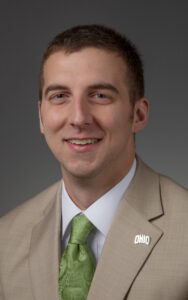
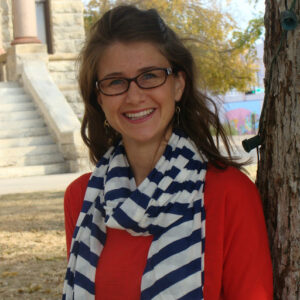
Topic: Neuroeducation Principles and Process: A Contemporary Approach to Adlerian Practice
Teaching and re-education were fundamental elements to Alfred Adler’s approach to helping. Alongside authentic relationship building efforts and expressions of encouragement, Adler shared ideas about cognitive, affective, and behavioral functioning relevant to an individuals’ mental health. Adler was clear, however, that human experience cannot be reduced to physical or chemical forces. He rejected the medical model in favor of a more humanistic, holistic approach. Where then does this leave Adlerian-aligned mental health professionals who wish to integrate contemporary neuroscience findings into their practice? This presentation will focus on a specific approach to neuroscience integration, neuroeducation. Neuroeducation is a humanistic, process-oriented framework of neuroscience-informed psychoeducation. The presentation will include an exploration of Adlerian theory and contemporary neuroscience research, a detailed review of neuroeducation history, principles, and processes, and a discussion of ethical and effective implementation of neuroeducation practices. The presenters will offer ideas for content-specific neuroeducation activities related to neuroplasticity, brain development, memory, autonomic nervous system functioning, and embodied wellness practices, as well as provide time and support for participants to create their own neuroeducation activities relevant to their specific areas of practice.
Learning Objectives:
- Identify links between Adlerian theory and contemporary neuroscience research.
- Describe essential principles and processes of effective neuroeducation application.
- Discuss ethical concerns related to neuroeducation practice.
- Demonstrate specific neuroeducation activities.
- Create a personalized neuroeducation activity.
Featured Speaker: Wes Wingett, Ph.D.
Topic: From Problem to Person to Pattern to Progress, An Adlerian Approach
From Problem to Person to Pattern to Progress: An Adlerian Approach is a didactic and experiential workshop based on the theory and practice of Adlerian psychology. The specific focus of this workshop will be tracing the movement of a person and a counselor through four intertwined aspects of the Adlerian counseling process. The first step in the process is to establish the scope and perception of the presenting problem and the development of goals of the work that is to be done. The second step in the process is to understand the individual and the specific assets of that person as they move toward the stated and agreed upon goals. The third step in the process is to understand and perhaps, modify, the cognitive, affective, and behavioral aspects of the individual. The fourth step in the process is to assess the progress that has been achieved through the therapeutic work. Emphasis will Be on the practical application of Adlerian psychology in an atmosphere characterized by empathy, ethics, encouragement, education, and equality.
Objectives of the workshop is for the particpants to be able to:
- describe four components of an Adlerian approach to counseling and psychotherapy
- develop Adlerian-based counseling goals in cooperation the client
- assess achievements of the client during the client’s childhood and adolescent
- define positive character traits embodied in the achievements
- utilize the positive character traits to move toward the Adlerian counseling goals
- recognize the dominant cognitive, affective, and behavioral patterns of the client
- devise methods with the client to measure progress toward the Adlerian-based counseling goals
Featured Speaker: Ted Warstadt & David Teed
Topic: Reorientation, Reeducation and Spirituality: “An Adlerian Approach to Emotional Healing”
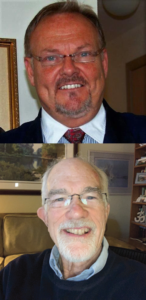 This workshop provides techniques and resources for facilitating client reorientation and reeducation. Relaxation, visualization, and song will be demonstrated and discussed as a potential catalyst to individual emotional healing. Workshop participants will receive spiritually empowering notions that can be utilized to guide clients to their deeper, inner self. Attendees will be provided with material to develop a reeducation manual for clinical intervention.
This workshop provides techniques and resources for facilitating client reorientation and reeducation. Relaxation, visualization, and song will be demonstrated and discussed as a potential catalyst to individual emotional healing. Workshop participants will receive spiritually empowering notions that can be utilized to guide clients to their deeper, inner self. Attendees will be provided with material to develop a reeducation manual for clinical intervention.
Objectives of the workshop:
- Understand Alfred Adler’s Spirituality and His Views on the Soul
- Understand Contemporary Adlerian Views on Religion and Spirituality
- Understand How Near-Death Research Can Influence Spiritual Interest and Insight
- Understand How Relaxation, Mindfulness and Awareness can Lead to Emotional Wellness
- Learn Maxims or Notions to Teach Clients About Love, Forgiveness, Wholeness and Healing
Featured Speaker: Wes Wingett, Ph.D.
Topic: Phases of Adlerian Counseling and Psychotherapy
Phases of Adlerian Counseling and Psychotherapy is a didactic and experiential workshop based on the theory and practice of the psychology developed by Alfred Adler.
Primary points of emphasis will be on understanding and applying the four phases of Adlerian counseling and psychotherapy, namely, engagement, investigation, understanding, and movement when working with individuals, couples, and groups in the therapeutic process. The importance of encouragement and social interest by the mental health professional during each phase will be defined and demonstrated.
Emphasis in the workshop will be on the professional application of Adlerian theoretical and practical principles to counseling and psychotherapy conducted in an atmosphere characterized by equality, empathy, education, encouragement, and ethics.
Objectives of the workshop:
- Participants will be able to explain the four phases of Adlerian counseling and psychotherapy (Engagement, Investigation, Understanding, and Movement).
- Participants will design Engagement strategies emphasizing the use of encouragement and social interest in the counseling and psychotherapeutic process.
- Participants will design Investigation strategies emphasizing the use of encouragement and social interest in the counseling and psychotherapeutic process.
- Participants will design Understanding strategies emphasizing the use of encouragement and social interest in the counseling and psychotherapeutic process.
- Participants will design Movement strategies emphasizing the use of encouragement and social interest in the counseling and psychotherapeutic process.
Featured Speaker: Jon Sperry, Ph.D., LMHC, LCSW, NCC
Topic: Adlerian Therapy Bootcamp: Theory and Practice
Jon Sperry, Ph.D., LMHC, LCSW, NCC is a core faculty member in the Clinical Mental Health Counseling program at Lynn University. He is a board certified licensed mental health counselor and a licensed clinical social worker in the state of Florida and has been a staff therapist at the Counseling and Psychological Services at Florida Atlantic University (FAU) since 2010. Dr. Sperry is currently the co-editor in chief of the Journal of Individual Psychology.
Dr. Sperry has co-authored five textbooks, five book chapters, and various professional articles. In November 2017, he co-authored the book, Cognitive Behavioral Therapy in Counseling Practice, through Routledge Publishing. Other books that he has co-authored have included two editions (2012 & 2020) of Case Conceptualization: Mastering this Competency with Ease and Confidence (translated in Turkish in 2016 and Korean in 2015) and Cognitive Behavior Therapy of the DSM-5 Personality Disorders in 2015. He also co-edited Psychopathology and Psychotherapy: DSM-5 Diagnosis, Case Conceptualization, and Treatment in 2015.
In addition to his clinical experience and publications, he has conducted workshops and lectures throughout the United States and in 19 countries around the globe- including Bulgaria, The Bahamas, Brazil, Canada, China, France, Germany, Ireland, Japan, Mexico, Morocco, Netherlands, Romania, Slovakia, South Korea, Taiwan, Turkey, The United Kingdom, and Uruguay.
For more information about Dr. Sperry and his work, please visit www.drjonsperry.com
Adlerian therapy is well suited for clinical practice today because its theory and practice is compatible with a wide range of contemporary approaches. It is noteworthy that many of the basic principles of Adlerian theory have influenced and predated some of the most commonly utilized counseling approaches that are used today (Corey, 2017). The Adlerian perspective is optimistic and focuses on assets, strengths, and health rather than on liabilities, deficits, and pathology.
This workshop will focus on the utilization of Adlerian strategies that can be used with adolescents and adults. The workshop will introduce trauma-informed Adlerian case conceptualization and will also highlight how practitioners can incorporate Feedback Informed Treatment (FIT) in Adlerian counseling. Emphasis will be on Adlerian case conceptualization, lifestyle assessment, and Adlerian-informed treatment strategies.
Featured Speaker: Wes Wingett, Ph.D.
Topic: Adlerian Group Case Consultation
Adlerian Group Case Consultation is a didactic and experiential workshop based on the theory and practice of the psychology developed by Alfred Adler. A structured group psycho-educational process will be utilized to better understand clients whether they are children, adolescents, adults, or aging. In addition, the Adlerian group case consultation model will be utilized to better understand couples, families and small groups. Emphasis will be on the practical application of Adlerian psychology in personal and professional venues and the workshop will be conducted modeling empathy, encouragement, equality, and ethics in a psycho-educational setting.
Featured Speaker: Rocky Garrison, Ph.D.
Topic: Developing Competence in Individual Psychology Counseling with Supervision & Consultation an Advanced Workshop
You don’t learn Individual Psychology (IP) counseling from a book, you learn it one client at a time, and good supervision and consultation is essential. This workshop will integrate the best practices for supervision established by professional organizations with the core constructs and the psychological dynamics of IP. The use of the IP case formulation will be demonstrated. The use of IP dynamics will be discussed and illustrated. Learning contracts for both individual and group formats will be shared, and collaborative goal setting will be modeled and discussed. The structure, roles, and functions of an IP supervision/consultation group will be presented, demonstrated, and practiced.
My original training in Adlerian Psychology was with Rich Kopp when I was in graduate school, 1973-1978. He was the chair of my dissertation using early recollections to explore sex role stereotypes. I completed a post graduate certification in Adlerian psychotherapy with Bob Powers and Jane Griffith in 1990. I served as Treasurer of IAIP, am a long-term
member of NASAP and have served on their Board of Directors. I was also a board member and President of Oregon Society of Individual Psychology. I have published several papers in JIP and presented at the annual conference numerous times. I am currently an Associate Professor at Adler Graduate School in Minneapolis, where I teach on-line courses.
Featured Speaker: Wes Wingett, Ph.D.
Topic: Creating Lifestyle in Three Acts
Creation of Life Style in Three Acts is a didactic and experiential workshop based on the psychology developed by Alfred Adler. Each of the three acts represents one separate and distinct component of the development and adaptation of life style. Act I focuses on family legacy including the perception and conclusions drawn about the stories, photographs, memorabilia, artifacts, and events that were part of your family of origin before your birth. Act II focuses on family relationships including your arrival into the family and the first five years of your life including the perceptions, images, and relationships that you observed and experienced and the conclusions that you drew. Act III focuses on the adaptation of the life style as you currently experience the worlds of work, friendship, love, self-care, and spirituality. Emphasis will be on the practical application of Adlerian psychology in personal and professional venues and the workshop will be conducted modeling empathy, encouragement, equality, and ethics in an educational setting.
Featured Speaker: Rocky Garrison, Ph.D.
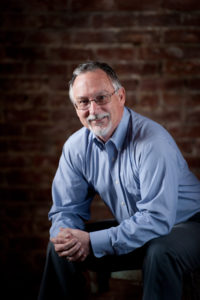 Individual Psychology ~ Skills ~ for Enhancing Relationships with Clients
Individual Psychology ~ Skills ~ for Enhancing Relationships with Clients
Alfred Adler described and modeled a process for integrating the results of the assessment process in counseling, identifying seven “tests for correctness.” In the first day of this workshop specific IP strategies for generating hypotheses about the client’s style of living and for assembling and verifying these hypotheses into a case formulation will be presented and demonstrated. A method unique to IP, multiple psychotherapy, will also be described and demonstrated as one way to utilize the case formulation in therapy.
The second day of the workshop focuses on developing the IP skills related to enhancing the client relationship and to promoting an encouraging, respectful, and egalitarian working alliance. Current literature identifies four key factors of a working alliance: informed consent, nurturing a therapeutic bond, sustaining task orientation, and maintaining goal alignment. The Working Alliance Inventory will be used to define the components of a constructive therapeutic relationship and to aid participants in identifying their strengths and weaknesses in the process of establishing and maintaining a working alliance.
My original training in Adlerian Psychology was with Rich Kopp when I was in graduate school, 1973-1978. He was the chair of my dissertation using early recollections to explore sex role stereotypes. I completed a post graduate certification in Adlerian psychotherapy with Bob Powers and Jane Griffith in 1990. I served as Treasurer of IAIP, am a longterm member of NASAP and have served on their Board of Directors. I was also a board member and President of Oregon Society of Individual Psychology. I have published several papers in JIP and presented at the annual conference numerous times. I am currently an Associate Professor at Adler Graduate School in Minneapolis, where I teach on-line courses.
Featured Speaker: Wes Wingett
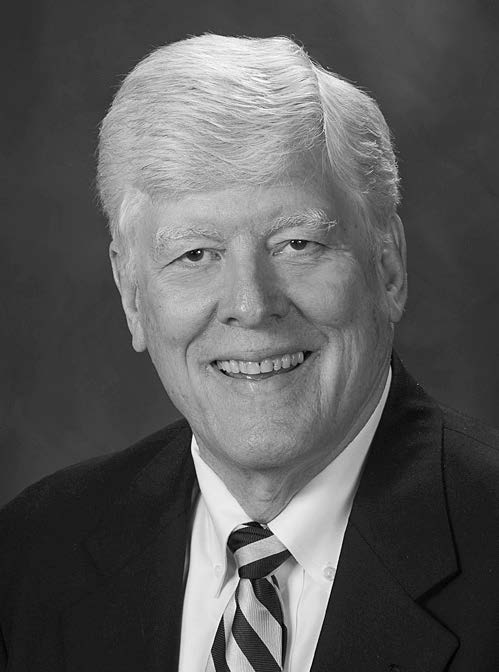 Making Memory Maps ~ Creating Lifestyle
Making Memory Maps ~ Creating Lifestyle
October 12th-13th, 2018 in Boise, ID
This didactic and experiential workshop will focus on understanding the development of lifestyle through the creation of a childhood memory map. The childhood memory map will focus on family, friends, neighborhood, and school. Lifestyle conclusions will be developed based on the personal perceptions of the components of the memory map. Components of the lifestyle conclusions will be utilized in seeking solutions to current challenges. The workshop will be conducted using the theory of Alfred Adler and will emphasize empathy, encouragement, equality, ethics and education as the theoretical and practical. Objectives: Participants will (1) review several principles of Adlerian psychology, (2) create a childhood memory map focusing on family, friends, and community, (3) identify personal perceptions of childhood family, friends, and community, (4) utilize the perceptions as a source of strengths and socially useful strategies, (5) identify a current challenge, and (6) utilize personal strengths and resources to move toward a solution of the identified challenge.
Wes Wingett, PhD, LMHP has been a counselor in private practice in Norfolk, NE since 1978. Prior to entering private practice, Dr. Wingett had been employed as a counselor in a mental health center, a university program development specialist, and in multiple educational settings as a counselor and teacher. Dr. Wingett received his bachelor’s degree from Wayne State College, Wayne, NE, and his masters and doctorate in guidance and counselor education from the University of Wyoming in Laramie, WY. Additional graduate study was completed at the University of Northern Colorado and the University of Vermont. Dr. Wingett’s private practice focuses on providing individual, couple, and family counseling, consultation to educational institutions and businesses, and presenting Adlerian training in a variety of national and international venues. Wes has served as a consultant in the areas of aging and long-term care solutions, early childhood education, time and stress management, domestic violence, drug and alcohol prevention and treatment, health care and wellness, criminal justice, adult-child relationships and training of professional educators and counselors.
Featured Speaker: Michael McDonough, PhD
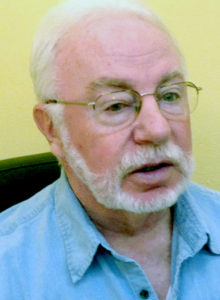 “Adlerian Encounters from Many Sides” May 4th & 5th, 2018 in Boise, ID
“Adlerian Encounters from Many Sides” May 4th & 5th, 2018 in Boise, ID
Michael has practiced Adlerian Counseling and Psychotherapy for over 30 years. He holds a license to practice Clinical Psychology in the state of Virginia. Michael is an associate Fellow in the Irish Psychological Society as well as a Chartered Psychologist in Ireland. His Doctorate is from the College of William and Mary in Virginia.
Attracted to Adler’s Individual Psychology as an undergraduate student taking a Psychology Class, Michael discovered the links between Adler and Michael’s lifelong love of music. His Professional life is infused with his ongoing work as an Adlerian and his continued pursuit of growth in music through performance. His early experiences demonstrated social connectedness and contribution as important elements, so Adler’s ideas appear as self evident experiences. The sharing of music with people from other cultures who have different languages further enhances the value of music as a universal form of communication in his experience.
As Michael entered his Psychological training at Rutgers and continued in a Graduate Program at William and Mary, he was exposed to more of Adler’s ideas and found a Mentor. That led to membership in NASAP in the 1980s and more exposure and training. He expanded his experiences by living, working & teaching in Bermuda from 1998 to 2007. He has also spent time in Ireland providing his Professional Expertise. He became an Associate Fellow of the Psychological Society of Ireland due to those experiences. He and his family returned to the US in Southwest Virgina in 2011, working at a State Child Development Clinic, as well as providing Private Practice Services to Clients in the under-served area of Appalachia.
This two-day Advanced ISIP Workshop will present Michael’s approach which incorporates an overview from a Theatrical Perspective. Incorporating Blaybill, background, writers, synopsis, and moving through the experience as Act 1, Act 2, and Resolution. Post-Event discussion will incorporate the elements and experience. Ongoing activities will incorporate demonstrations, small group activity, and reciprocal discussions. This event will be an additional hands-on experience for Advanced Attendees.
Featured Speaker: Wes Wingett
 From Personal Perception to Community Feeling: An Adlerian Journey
From Personal Perception to Community Feeling: An Adlerian Journey
October 13th-14th, 2017 in Boise, ID
This didactic and experiential workshop based on the Individual Psychology of Alfred Adler will identify a current personal experience that is creating a challenge, process the event utilizing several Adlerian-based strategies, and create alternative solutions encompassing an increased sense of community feeling or social interest. Emphasis will be on using Adlerian-based theory and practice to increase self-understanding and professional development.
Wes Wingett PhD has been a counselor, educator, and consultant in private practice in Norfolk, NE since 1978. Dr. Wingett, a Diplomate in Adlerian Psychology conferred by the North American Society of Adlerian Psychology, has coauthored several articles published in professional journals, coauthored several chapters in books, self published four workbooks focusing on the application of Adlerian psychology to various challenges of living, and co-authored four workbooks on families. He has conducted workshops based on the Individual Psychology of Alfred Adler in twenty states in the United States, Puerto Rico, three provinces in Canada and several countries in central and far eastern Asia, Europe, Central America and South America.
Featured Speaker: Steven A. Maybell, PhD
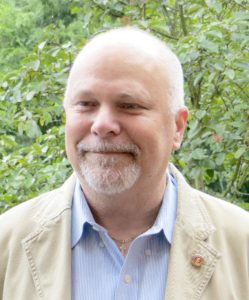 Spend two days with Steven A. Maybell, Ph.D. who started The Series, the three course program
Spend two days with Steven A. Maybell, Ph.D. who started The Series, the three course program
in Adlerian Theory, Adlerian Psychotherapy, and Adlerian Family Therapy, leading to the ISIP Certificate of Professional Studies in Adlerian Psychology. Those of you who took The Series from Steve know how well he is able to bring clarity to Adlerian ideas and create a dynamic learning environment.
Steve is one of the world’s 35 Diplomates in Adlerian Psychology, as well as a Diplomate in Professional Psychotherapy, a Diplomate in Clinical Social Work, AAMFT Clinical Fellow and Approved Supervisor, and listed in Who’s Who Among America’s Teachers. He is currently the Director of the Student Counseling Center and Professor in Marriage and Family Therapy at Seattle Pacific University. He also maintains a private consultation and supervision practice for licensed mental health professionals and those pursuing licensure.
Dr. Maybell has authored numerous publications including “Raising Respectful Kids in a Rude World” (Prima 2001) and “Calming the Family Storm” (Impact 2005). Dr. Maybell has been teaching Adlerian Psychology for over 40 years. Steve’s consistently positive evaluations are a testimony to his ability to make Adlerian Psychology practical, accessible, and relevant to today’s world and today’s problems.
Adlerian Toolkit: Continued
Steve has put together a special two day training for us, sharing the most innovative, impactful, therapeutic strategies he has come across in his over 40 years of practice, almost never included in Adlerian therapy trainings. The course will incorporate lecture and discussion, experiential exercises, and video and live demonstrations. Therapeutic techniques will be chosen from the list below.
• Renewing Adlerian Theory – Extending Our Understanding of the Mind/Body Connection
• Traps and Escapes: Understand Where “Resistance” Comes from – Know What to Do
• Steve’s Grief and Loss Notes
• Holistic-Metaphorical Therapy – A Five Minute Intervention
• The Memory Re-Authoring Technique
• Helping Clients Heal Trauma – Bottom Up Processing
• Revisiting the Empty Chair
Featured Speaker: Wes Wingett
 Wes Wingett PhD has been a counselor, educator, and consultant in private practice in Norfolk, NE since 1978. Dr. Wingett, a Diplomate in Adlerian Psychology conferred by the North American Society of Adlerian Psychology, has coauthored several articles published in professional journals, coauthored several chapters in books, self published four workbooks focusing on the application of Adlerian psychology to various challenges of living, and co-authored four workbooks on families. He has conducted workshops based on the Individual Psychology of Alfred Adler in twenty states in the United States, Puerto Rico, three provinces in Canada and several countries in central and far eastern Asia, Europe, Central America and South America.
Wes Wingett PhD has been a counselor, educator, and consultant in private practice in Norfolk, NE since 1978. Dr. Wingett, a Diplomate in Adlerian Psychology conferred by the North American Society of Adlerian Psychology, has coauthored several articles published in professional journals, coauthored several chapters in books, self published four workbooks focusing on the application of Adlerian psychology to various challenges of living, and co-authored four workbooks on families. He has conducted workshops based on the Individual Psychology of Alfred Adler in twenty states in the United States, Puerto Rico, three provinces in Canada and several countries in central and far eastern Asia, Europe, Central America and South America.
Adlerian Strategies For: Understanding Places, Play, and Priorities
This didactic and experiential workshop will be focused on understanding children, adolescents, and adults utilizing three Adlerian-based strategies. “Places” will focus on perception of events and experiences at home and school, “play” will focus on perception of childhood experiences of playing alone and in groups, “priorities” will focus on strategies developed to solve problems and to interact more effectively at home, at work, and in the community. Participants will be able to utilize the strategies demonstrated and experienced to their specific work with children, adolescents, and adults.
Advanced Workshops are open to all graduates of The Series ( the 3 Basic Workshops) who have attended one Annual Conference.
Featured Speaker: Richard E. Watts
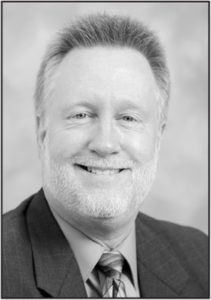 Dr. Richard Watts is a Texas State University System Regents’ Professor, a Distinguished Professor of Counseling at Sam Houston State University (SHSU), and the Director of the Ph.D. Program in Counselor Education and Supervision at SHSU. He is also a Fellow of the American Counseling Association, a Diplomate in Adlerian Psychology, and the immediate Past-President of the North American Society for Adlerian Psychology. Dr. Watts has published and presented extensively, both in the United States and internationally, on Adlerian theory and practice, and has developed or adapted several Adlerian-based interventions that will be addressed in this workshop.
Dr. Richard Watts is a Texas State University System Regents’ Professor, a Distinguished Professor of Counseling at Sam Houston State University (SHSU), and the Director of the Ph.D. Program in Counselor Education and Supervision at SHSU. He is also a Fellow of the American Counseling Association, a Diplomate in Adlerian Psychology, and the immediate Past-President of the North American Society for Adlerian Psychology. Dr. Watts has published and presented extensively, both in the United States and internationally, on Adlerian theory and practice, and has developed or adapted several Adlerian-based interventions that will be addressed in this workshop.
Being a Therapeutic Chameleon: Integrative Strategies and Techniques for Adlerian Therapy
Being a therapeutic chameleon means that the counselor does what the client needs; not what the counselor prefers. Because Adlerian counseling is a flexible approach, it readily allows mental health professionals to be both theoretically consistent and technically eclectic; that is, it allows us to be a therapeutic chameleon. Thus, the counselor does what the client needs; not simply what the counselor prefers. Via discussion, demonstration, and practice, attendees of this workshop session will increase
understanding and application of (a) the common ground Adlerian counseling and the common factors of successful counseling outcomes; (b) the common ground between the Stages of Change Model and the four phases of Adlerian counseling; (c) Adlerian strategies and techniques – some traditional, some more recently developed; (d) techniques that resonate with, and integrate easily into, Adlerian counseling; and (e) where and how these strategies and interventions may be used in the counseling process. Although the content in the workshop is geared toward Adlerian counselors, the techniques presented may be used by most counselors regardless of their guiding theoretical orientation and work settings.

